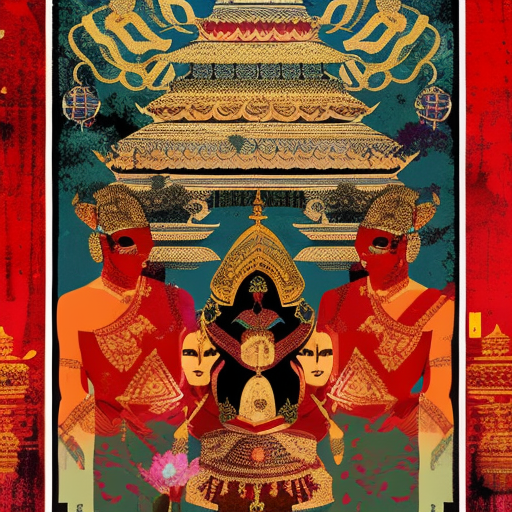One-line Summary:
Set in colonial Burma, “Burmese Days” is a scathing critique of British imperialism, exploring themes of racism, corruption, and the clash of cultures.
Introduction:
“Burmese Days” is a novel written by George Orwell and published in 1934. Set in the fictional town of Kyauktada in colonial Burma during the 1920s, the book provides a scathing critique of British imperialism. Through vivid characters and a compelling plot, Orwell explores themes of racism, corruption, and the clash of cultures. The story follows John Flory, a British timber merchant, as he navigates the complexities of colonial society and grapples with his own sense of identity.
Life in Colonial Burma:
Orwell vividly portrays the oppressive and stifling atmosphere of colonial Burma. The British ruling class, represented by the members of the European Club, dominates the social and political landscape. The native Burmese people are treated as second-class citizens, subjected to discrimination and exploitation. Orwell exposes the inherent racism and hypocrisy of the colonial system, highlighting the stark contrast between the luxurious lifestyles of the British and the poverty and suffering of the Burmese.
The Clash of Cultures:
One of the central themes in “Burmese Days” is the clash of cultures between the British colonizers and the Burmese natives. Orwell explores the cultural misunderstandings and prejudices that arise from this clash, revealing the deep-seated ignorance and arrogance of the British. The Burmese are depicted as exoticized and dehumanized, reduced to mere objects of fascination or contempt. Orwell challenges the notion of British superiority and exposes the damaging effects of imperialism on both the colonizers and the colonized.
The Corruption of Power:
Corruption is a pervasive theme in “Burmese Days,” as Orwell exposes the moral decay and hypocrisy of the colonial administration. The British officials, driven by their own self-interests, engage in bribery, embezzlement, and abuse of power. The protagonist, John Flory, finds himself caught in this web of corruption, torn between his desire for justice and his fear of social isolation. Through Flory’s character, Orwell highlights the moral compromises and personal sacrifices required to maintain power in a corrupt system.
Key Takeaways:
- Orwell’s “Burmese Days” is a scathing critique of British imperialism in colonial Burma.
- The novel explores themes of racism, corruption, and the clash of cultures.
- Orwell vividly portrays the oppressive atmosphere of colonial Burma and the stark contrast between the lives of the British and the Burmese.
- The clash of cultures between the British colonizers and the Burmese natives is a central theme, highlighting cultural misunderstandings and prejudices.
- Corruption is pervasive in the colonial administration, and Orwell exposes the moral decay and hypocrisy of the British officials.
“The greatest of evils and the worst of crimes is poverty our first duty, to which every other consideration should be sacrificed, is not to be poor.”
Conclusion:
“Burmese Days” is a powerful and thought-provoking novel that exposes the dark underbelly of British imperialism in colonial Burma. Through its exploration of racism, corruption, and the clash of cultures, Orwell challenges the notion of British superiority and highlights the damaging effects of imperialism on both the colonizers and the colonized. The book serves as a stark reminder of the injustices perpetuated by colonialism and the importance of questioning and challenging oppressive systems.












